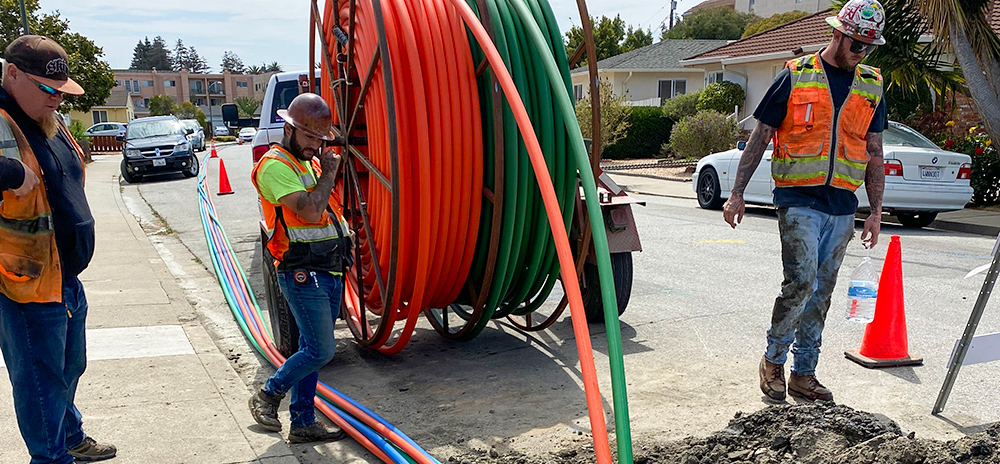Today, the internet is the number one method of connectivity for the billions of people around the world for work, entertainment and personal connection. For last-mile internet service providers, offering customers dependable high-speed internet from the main network line (the “Backbone”) to their businesses and homes is a competitive advantage, and fiber optic technology is the most reliable, scalable and fastest medium for moving data available today. Impressively, it can send data as fast as about 70% of the speed of light.
The Technology
Fiber technology uses fiber optics to transmit information in the form of light rather than electricity. Traditionally, cable, DSL and dial-up internet transmit information by sending electricity over copper wires. While copper still plays an important role in delivering connectivity over the “last mile” to homes and businesses, almost all network backbones are comprised exclusively of fiber.
Fiber technology uses optical fibers made up of flexible strands of glass slightly larger in diameter than a human hair, which are wrapped in a bundle of protective layers of plastic making up the fiber optic cable. The optical fibers within the cable carry pulses of LED light down the line. These pulses transmit information in binary form, similar to the 0s and 1s used in electronics. At an optical network terminal, the pulses of light are converted into electrical output through an Ethernet connection that end users’ devices can understand and use.
The Fiber Advantage
Internet powered by fiber technology has several benefits.
- Fiber cables are sturdy and engineered to withstand challenging conditions and rugged installations.
- Fiber cables are less vulnerable to extreme weather conditions compared to traditional types of cables, minimizing the occurrence of outages.
- Fiber cables effectively resist electrical interference.
- Fiber carries light pulses over relatively long distances with low attenuation (weakening) or distortion of the signal, compared to copper wires which significantly attenuate and distort the voltage signal.
- Fiber optic lines possess significantly greater bandwidth capacity since they are not constrained by the physical limitations of electricity transmission through metal conductors.
- Fiber internet speeds can be about 20 times faster than cable internet.
With all the advantages to fiber technology, fiber optic lines are the trusted infrastructure backbone of today and tomorrow’s internet networks — providing local internet service providers, telecommunications carriers and enterprise organizations with superior, reliable service. You can learn more about IIG’s services here.
